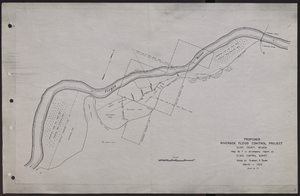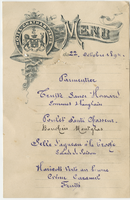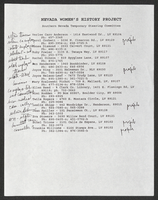Search the Special Collections and Archives Portal
Search Results

Map of proposed flood control project on the Virgin River in Clark County, Nevada, March, 1934
Date
Archival Collection
Description
Image
#71259: Sean Clark, associate dean for research and sponsored projects on November 22, 2016, 2016 November 22
Level of Description
Archival Collection
Collection Name: University of Nevada, Las Vegas Creative Services Records (2010s)
Box/Folder: Digital File 01
Archival Component
Rich Pulin oral history interview, 2023 February 08, 2023 February 22
Level of Description
Archival Collection
Collection Name: Veterans' Voices: We're Listening Oral History Project
Box/Folder: Digital File 00 (Restrictions apply)
Archival Component
Henry Robinson oral history interview, 2023 June 22, 2023 August 29
Level of Description
Archival Collection
Collection Name: Veterans' Voices: We're Listening Oral History Project
Box/Folder: Digital File 00 (Restrictions apply)
Archival Component

Hotel Chatham menu, October 22, 1894
Date
Archival Collection
Description
Text
Valerie Wiener's oral history for UNLV Libraries Southern Nevada Jewish Heritage Project, 2015
Level of Description
Archival Collection
Collection Name: Valerie Wiener Papers
Box/Folder: Box 08
Archival Component
Valley Bank-Tonopah, Nevada branch, project 06905, 1982 January 22
Level of Description
Archival Collection
Collection Name: Martin Stern Architectural Records
Box/Folder: Box 17
Archival Component

Nevada Women's History Project organizational records
Date
Archival Collection
Description
Folder from the Nevada Women's History Project Records (MS-00406).
Text
J. K. Russ oral history interview
Identifier
Abstract
Oral history interview with J. K. Russ conducted by Claytee D. White on December 22, 2017 for the Remembering 1 October Oral History Project. In this interview, Russ discusses her early life in New Zealand and growing up on a tobacco farm. She remembers arriving to the United States and establishing a career as an artist. Russ talks about the 1 October shooting, creating an art exhibit using cards and letters received from people all over the world, and Las Vegas’ response to the tragedy. Lastly, Russ describes the art community in Las Vegas and the Arts District.
Archival Collection
Lavell Jarrett oral history interview
Identifier
Abstract
Oral history interview with Lavell Jarrett conducted by Robert B. Grzywacz on February 22, 1975 for the Ralph Roske Oral History Project on Early Las Vegas. In his interview Jarrett discusses his early life in Utah and his career with the Union Pacific Railroad.
Archival Collection
